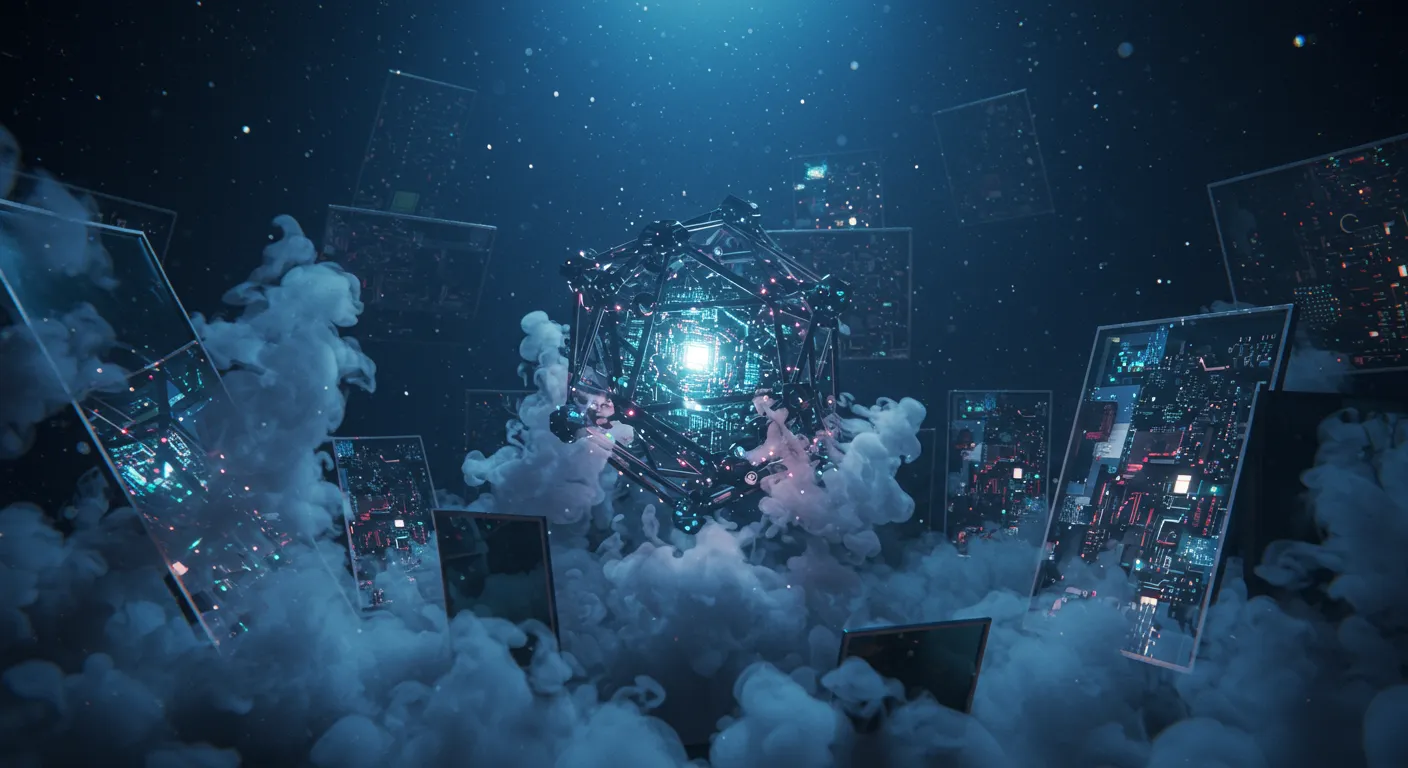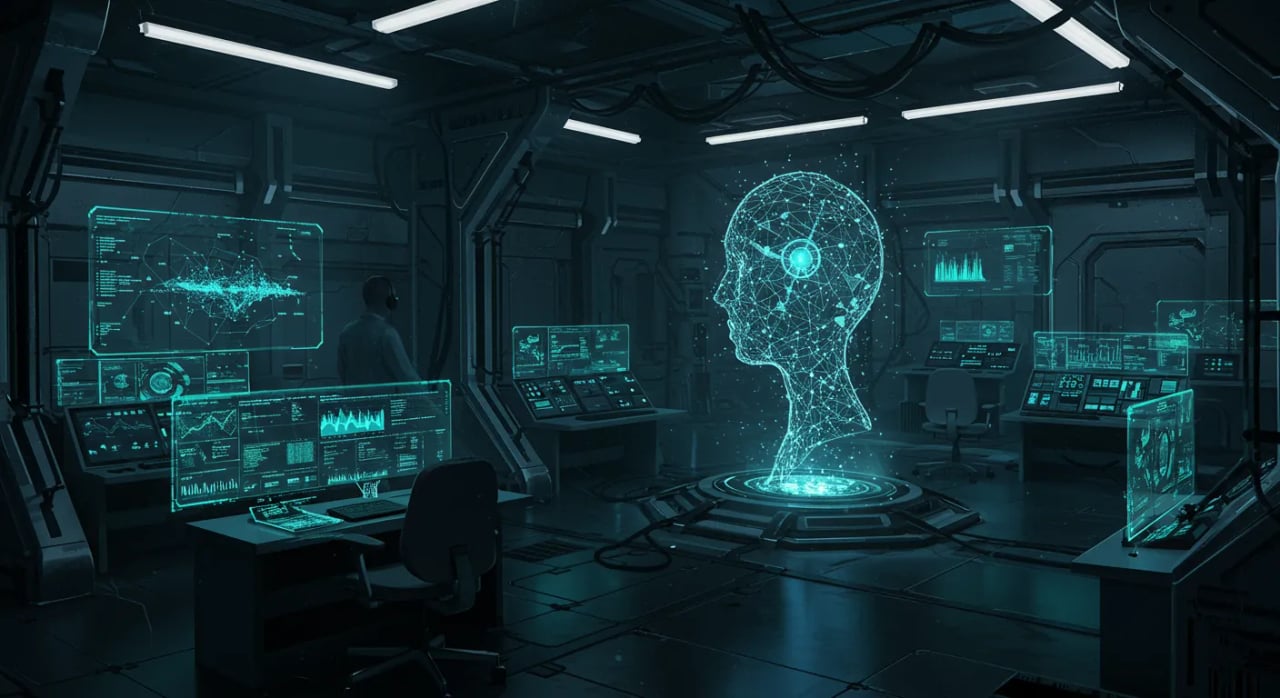Picture this: I’m sipping coffee when a friend blurts out, ‘Did you know OpenAI’s leadership drama is wilder than most reality TV shows?’ That comment piqued my curiosity—and led me to ‘Empire of AI: Dreams and Nightmares in Sam Altman’s OpenAI.’ Not just another tech exposé, the book peels back layers on how ambition, secrecy, and a dash of chaos can shape the world’s most hyped (and shadowy) AI company. If you’ve ever wondered what goes on behind the APIs and press releases, buckle up—this is where the story gets wild (and a little unsettling).
The OpenAI Mystique: Smoke, Mirrors, and Machine Dreams
When you think about Artificial Intelligence today, it’s hard not to picture OpenAI at the center of the conversation. In just a few years, OpenAI has transformed from a promising research lab into a near-mythical force in the AI industry. This transformation has been fueled not just by groundbreaking products like ChatGPT and Dall-E, but also by a culture of secrecy that both fascinates and frustrates the world.
Investigative journalist Karen Hao, in her book Empire of AI: Dreams and Nightmares in Sam Altman’s OpenAI, describes OpenAI as “one of the most famous and secretive companies in the world.” That secrecy is no accident. It’s a deliberate part of OpenAI leadership’s strategy, amplifying the company’s brand while shielding its inner workings from public scrutiny. The result? A mystique that keeps the AI industry—and the public—guessing about what’s really going on behind the scenes.
From Lab to Legend: The Rise of OpenAI
OpenAI’s journey began with a bold mission: to develop Artificial General Intelligence (AGI) that could match or even surpass human cognitive abilities across every task. While many AI firms focus on narrow, specialized applications, OpenAI set its sights on the broadest and most ambitious goal possible. This pursuit of AGI is what truly sets the company apart in the wider AI industry.
Significant funding from Microsoft turbocharged OpenAI’s growth, leading to the rapid development and launch of products like ChatGPT and Dall-E. These tools didn’t just set new standards for generative AI—they also became household names, cementing OpenAI’s place at the forefront of ChatGPT development and AI innovation.
Secrets, Rumors, and the Power of Ambiguity
But for every public success, there’s a shadowy side to OpenAI’s story. Hao’s research shows that the company’s secretive culture is both a shield and a source of controversy. Rumors and leaks swirl around OpenAI, creating an odd sense that the world’s next big disruptor is also its greatest unknown. The lack of transparency makes it difficult for journalists and outsiders to get a clear picture of what’s happening inside the company’s walls.
What you see—ChatGPT, Dall-E, and other AI marvels—is just the tip of the iceberg. Beneath the surface, OpenAI’s private ambitions and internal debates remain largely hidden. This duality raises an interesting question: If OpenAI were a band, would it be more famous for its chart-topping hits or its backstage drama?
“OpenAI is one of the most famous and secretive companies in the world.” – Karen Hao
In the end, OpenAI’s mystique is as much about what you don’t see as what you do. The company’s drive for Artificial General Intelligence, combined with its elusive leadership style, keeps the AI industry—and the rest of us—wondering what’s next.

Sam Altman and the Tightrope of Visionary Leadership
When you think of the AI industry today, it’s hard not to picture Sam Altman at the center of the storm. His journey from Silicon Valley prodigy to the polarizing face of OpenAI is as much a story of ambition as it is of controversy. If you’ve followed the headlines, you know that Altman’s leadership style is anything but ordinary. He’s not just steering OpenAI toward artificial general intelligence (AGI); he’s redefining what tech leadership looks like under the brightest—and harshest—spotlights.
Altman’s trajectory is the stuff of modern tech legend. He started as a wonderkid, making waves in the startup world before taking the helm at OpenAI. Under his leadership, OpenAI has become synonymous with innovation and secrecy, launching products like ChatGPT that have set new standards for generative AI. But with that innovation comes turbulence. As investigative journalist Karen Hao writes,
“Altman’s leadership has been marked by controversy, including his sudden firing and return.”His abrupt ouster by OpenAI’s board, followed by an even swifter reinstatement, felt less like a boardroom decision and more like a cliffhanger from a prestige TV series.
What’s behind this drama? Research shows that visionary goals—like OpenAI’s pursuit of AGI—can create both chaos and clarity. On one hand, Altman’s relentless push for artificial general intelligence has propelled the company into risky, uncharted territory. On the other, it’s fostered a culture of secrecy and internal tension. Hao’s book, “Empire of AI,” dives deep into how OpenAI’s direction is tied closely to Altman’s personal philosophy. He’s both the symbol and orchestrator of the company’s high-stakes ambitions.
It’s worth pausing to imagine what it’s like to work under a leader like Altman. Maybe you admire his vision. Maybe you’re inspired by his willingness to take risks. But do you ever really know what’s coming next? Would you risk your own career for a boss you respect, but never fully understand? This is the paradox many at OpenAI have faced—drawn to the mission, yet wary of the unpredictable leadership style that defines the company’s culture.
For anyone aspiring to lead in the AI industry, Altman’s saga is both a lesson and a warning. The rewards of radical tech leadership are clear: influence, innovation, and the chance to shape the future. But the risks—sudden reversals, internal strife, and public scrutiny—are just as real. As you watch OpenAI chase the elusive dream of AGI, you can’t help but wonder: What kind of leadership does this new era of technology demand? And who, if anyone, can truly walk that tightrope?

Empire Building or Digital Colonialism? Ethics at the Edge of AI
When you look at the rapid rise of the AI industry, especially companies like OpenAI, it’s easy to get swept up in the excitement of technological progress. But as Empire of AI by Karen Hao reveals, the story isn’t just about innovation—it’s also about the ethical shadows cast by unchecked ambition. Developing Artificial Intelligence, particularly the kind that aims for Artificial General Intelligence (AGI), often blurs the lines of ethical responsibility. What does it really mean to build machines that could one day match or surpass human intelligence, especially when the rules and definitions are constantly shifting?
Hao draws bold parallels between the current AI boom and the age of colonial exploration. In her investigative work, she suggests that the AI industry’s expansion can be seen as a new kind of empire building—a technological “land grab” with consequences that reach far beyond code. Just as explorers once justified their conquests with lofty ideals, today’s AI leaders often speak of democratizing knowledge or advancing humanity. Yet, as Hao points out, the reality is often less romantic. The AI sector frequently justifies disruption with big promises, but the real-world impact on society, labor, and democracy is far more complex.
You’ll notice that moral posturing and market motivations often collide in the AI industry. OpenAI, for example, has positioned itself as a champion of responsible AI, but its secretive culture and aggressive pursuit of AGI have raised serious questions. As Hao notes, “The AI industry faces ethical concerns, with companies often prioritizing technological advancement over societal impact and transparency.” This tension is at the heart of the Empire of AI Book, which explores how OpenAI’s actions sometimes contradict its stated mission.
The analogy Hao uses—AI as colonialism—reframes how you might think about the industry’s unchecked growth. Imagine the early explorers searching for the fabled El Dorado, driven by dreams of gold and glory. In a similar way, AI companies are racing to stake their claim in the digital frontier, often without clear rules or accountability. The pursuit of AGI, in particular, is fraught with unresolved ethical questions. There’s no fixed definition for AGI, which makes public accountability a moving target. Who decides what’s responsible or safe when the destination itself is undefined?
Research shows that these issues aren’t just theoretical. The impact of AI on global power dynamics, labor, and even democracy is already being felt. Hao’s investigative journalism shines a light on the ways in which the AI industry’s ambitions can amplify historic power imbalances, echoing the patterns of colonial expansion. As you consider the promises and pitfalls of AI, the question remains: can anyone truly hold developers accountable when the landscape is changing so quickly?

The Power—and Limits—of Investigative Journalism in Tech
When you think of investigative journalism, you might picture reporters digging through political scandals or exposing corporate fraud. But in the world of AI technology, the stakes—and the obstacles—are different. Karen Hao, author of the Empire of AI Book, has become a digital detective, shining a light on the secrets and shadows of OpenAI, the company behind ChatGPT.
Hao’s journey is a case study in what it takes to uncover the truth in tech. She started as a journalist, but quickly found herself navigating a maze of non-disclosure agreements, proprietary secrets, and interviews so jargon-heavy they could make your head spin. Sometimes, the resistance is almost comical—Hao once tried to interview an engineer who would only respond in emojis. (Is that a true story? In the world of Big AI, it’s entirely possible.)
Why does this kind of reporting matter? Because most of us know less about companies like OpenAI than we do about oil giants or pharmaceutical firms. These organizations are building systems that could reshape labor, democracy, and even global power. Yet, their inner workings are often hidden behind black-box algorithms and carefully crafted narratives. As Hao puts it:
"Investigative journalism in technology is about uncovering the implications and inner workings of companies like OpenAI." – Karen Hao
The Empire of AI Book dives deep into these challenges. Hao’s reporting reveals how OpenAI, under Sam Altman’s leadership, has grown rapidly with massive funding from Microsoft and released products like ChatGPT and Dall-E. But with this growth comes a culture of secrecy. Journalists probing OpenAI face what’s called “black box” access—where even basic questions about how AI systems work or how decisions are made are met with silence or PR-speak.
Research shows that investigative journalism remains the public’s strongest tool for challenging powerful AI narratives. Without independent scrutiny, tech companies can shape their own stories—sometimes at the expense of transparency and accountability. Hao’s work is a reminder: journalism helps hold these giants accountable and helps the rest of us see what’s really at stake.
There’s a wild card in all this, too. Imagine a future where AI systems write their own press releases, with no human oversight. Who checks the facts then? Who investigates the investigators? As AI technology advances, the need for dogged, creative journalism only grows. Hao’s reporting shows that even when stories resist easy answers, persistent questioning is essential to deciphering tech’s true motives and claims.
Looking Ahead: Unfinished Questions, Unbounded Futures
As you reach the end of Karen Hao’s Empire of AI, it’s clear that the story of AI technology is far from finished. The book, released in June 2025, leaves you with more questions than answers—a fitting conclusion for a field that is evolving faster than we can fully grasp. OpenAI, the company behind ChatGPT and Dall-E, stands as a symbol of both the promise and the uncertainty that define the modern AI industry.
The impact of AI on society is profound, yet its ultimate footprint remains a work in progress. What shape will this new empire of AI ultimately take? Will it be a force for betterment, driving advancements in health, education, and creativity? Or will it deepen existing inequalities, disrupt jobs, and threaten democracy? The tension between these possibilities is palpable, and Hao’s investigative lens makes it impossible to ignore.
Despite remarkable breakthroughs, the dream of artificial general intelligence (AGI)—machines that match or surpass human cognitive abilities—remains nebulous and hotly debated. OpenAI’s pursuit of AGI is ambitious, but the definition itself is slippery. Research shows that while products like ChatGPT have set new standards in generative AI, the broader societal, economic, and philosophical implications are more urgent than ever. As Hao notes, “The development and deployment of AI technologies have profound impacts on society, affecting labor, democracy, and global dynamics.”
Hao’s book is not just a chronicle of OpenAI’s rise; it’s a call to action. She urges you to stay curious, to ask hard—even uncomfortable—questions about the direction of AI technology and the motives of those steering its course. If you could ask OpenAI’s founders one anonymous question, what would it be? Would you probe their vision for AGI, their approach to ethics, or the secrecy that shrouds so much of their work?
And then there’s the wild card: What if the future of AI isn’t shaped by secretive giants like OpenAI, but by open-source rebels who value transparency and collective progress? Imagine a world where the balance of power shifts, and the AI industry is led by communities rather than corporations. Who wins in that scenario—and how would we even know?
Ultimately, Empire of AI ends with an invitation. Karen Hao’s journey through OpenAI is still unfolding, just as the empire itself is still being built. The dream and the nightmare of AI are only beginning, and humanity—meaning you, the reader—holds the pen for the next chapter. Stay curious, stay critical, and be ready for whatever comes next.



